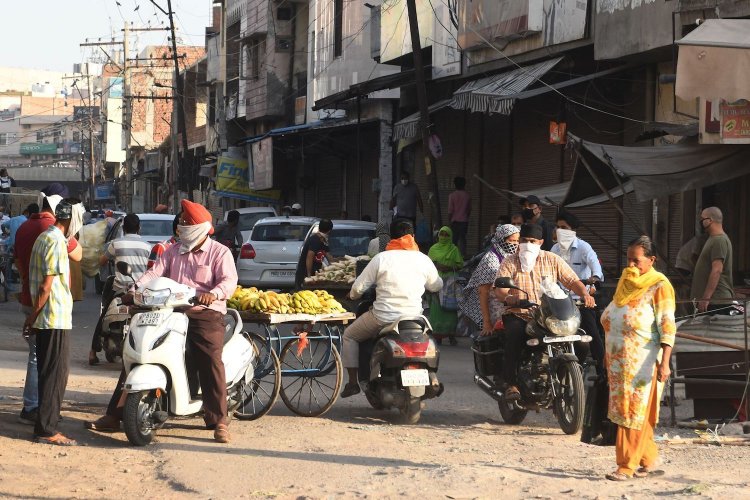Are Indians More Immune To COVID 19?

Millions of Indians have limited access to clean water, consume unhygienic food, breathe foul air and live in densely packed surroundings. Researchers have found this makes them susceptible to a host of non-communicable illnesses like heart and chronic respiratory diseases, cancer and diabetes.
These contribute significantly to the disease burden, according to a government report. Air pollution alone kills more than a million Indians every year.
The World Health Organisation says safe water, sanitation and hygienic conditions are essential for protection of health against Covid-19. A joint study by the WHO and the United Nations' children's agency, Unicef, found that nearly three billion people - some 40% of the global population and living almost entirely in developing nations - lack "basic hand washing facilities". This was enough to spark concerns that the coronavirus would tear through their populations, and lead to millions of deaths in countries such as India.
Now, new research by Indian scientists suggests that low hygiene, lack of clean drinking water, and unsanitary conditions may have actually saved many lives from severe Covid-19.
In other words, they propose that people living in low and low middle-income countries may have been able to stave off severe forms of the infection because of exposure to various pathogens from childhood, which give them sturdier immunity to Covid-19. Both papers, yet to be peer reviewed, looked at deaths per million of population to compare fatality rates.
One paper compared publicly available data for 106 countries on two dozen parameters like density of population, demography, prevalence of diseases, and quality of sanitation. The scientists found more people had died of Covid-19 in high income countries. "People in poorer, low income countries seem to have a higher immunological response to the disease compared to high income peers," Dr Mande, one of the authors of the study, told me.
The other paper looked at the role played by microbiome - the trillions of microbes that reside inside a human body - in Covid-19 infections. Microbiome includes bacteria, viruses, fungi and single-celled archaea. They help in digestion, protect against disease-causing bacteria, regulate the immune system and produce vitamins.
Praveen Kumar and Bal Chander from Dr Rajendra Prasad Government Medical College looked at data from 122 countries, including 80 high and upper middle-income ones. They suggest that Covid-19 deaths are lower in countries which have a higher population exposed to a diverse range of microbes, particularly of what is called "gram-negative bacteria".
These bacteria typically are responsible for severe pneumonia, blood and urinary tract and skin infections. But they also are believed to produce an antiviral cytokine - molecules which help fight pathogens - called interferon which protects cells against the coronavirus.
"So far, the existing predictive models for Covid-19 have not taken into account the immune status of populations caused by microbiome or environmental microbial exposure," Dr Chander told me.
Scientists believe it all boils down to the "hygiene hypothesis".
Its philosophy is that our environment has become so clean that it has left our immune system insufficiently trained, according to Matt Richtell, author of An Elegant Defence: The Extraordinary New Science of the Immune System. "The broad idea is that we are starving our immune systems of training and activity by excessive focus on cleanliness," he says.
Scientists say since correlation does not imply causation, such studies should be strictly regarded as observational.















































